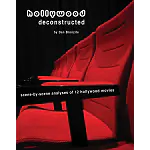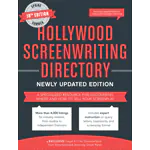Unless you are writing an ensemble movie like Robert Altman’s Short Cuts you will typically focus your story on a central character’s journey and the obstacles thrown in his or her way. The mistake many first-time screenwriters make is getting side-tracked by supporting characters and their own evolving character arcs.
Now, I need to preface this advice with a caveat since I have previously discussed how helpful it can be to create fully-developed secondary characters and their own lives outside of the central storyline and Protagonist. And by creating their “own lives” I don’t necessarily mean we need to see those lives but it’s important for the writer to know about them and to have explored them in order for your secondary characters’ dialogue and actions to ring true when they interact with the central character. I still stand by this but advise you to tread carefully so you do not inadvertently turn the spotlight onto your supporting character so much so that they outshine the hero/heroine of the piece.
You must remember whose point of view the movie story is being told from. Who are we as readers or an audience meant to identify with. If you have been following your main character for twenty straight scenes in a row and then cut to a secondary character – say, his best friend – then you need to be sure this diversion is justified within the context of the overarching story otherwise it will detract from your central plot and be redundant. If in this example the best friend makes a phone call about the hero or discovers something about the main plot that puts him and the hero in danger then that’s fine, but if the scene simply shows the best friend going on a date with someone that has absolutely no connection with the hero or plot and never will then lose it.
The same issue can arise when a writer focuses too much attention on the villain of the story. Yes, the Antagonist plays an important role and should never be considered as secondary since they balance the good with the bad, provide conflict, obstacles, fear, tension and keep everything ticking along toward a climax, but you can also go over the top with their scene stealing and story-hogging so as to pull focus from the hero or heroine. If we as an audience are supposed to empathize with the plight of the hero then we must go on the journey with them and walk in their shoes. That is crucial. Anything that deviates us from that journey or dilutes the connection with the hero is a negative factor and must be cut or reworked.




